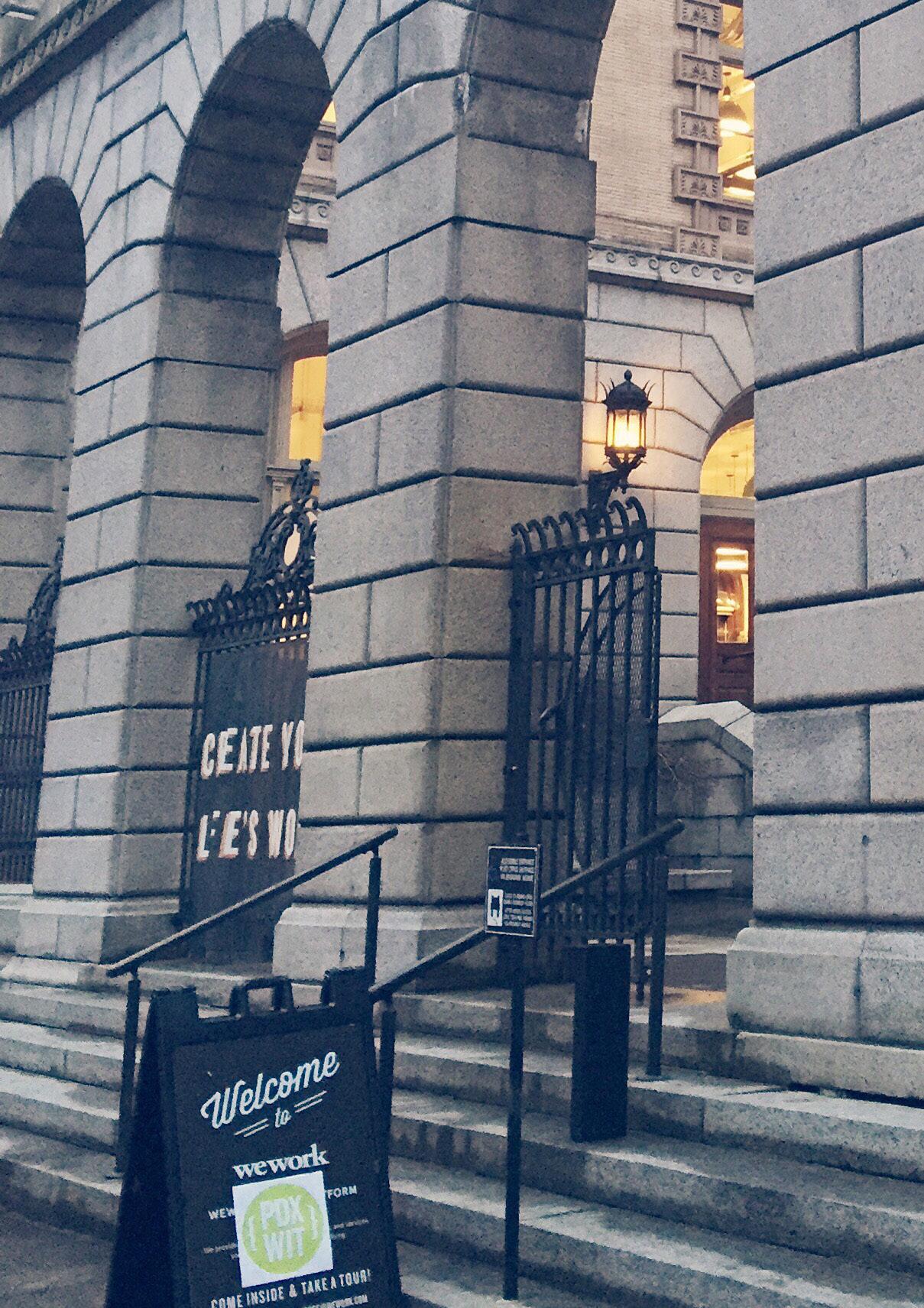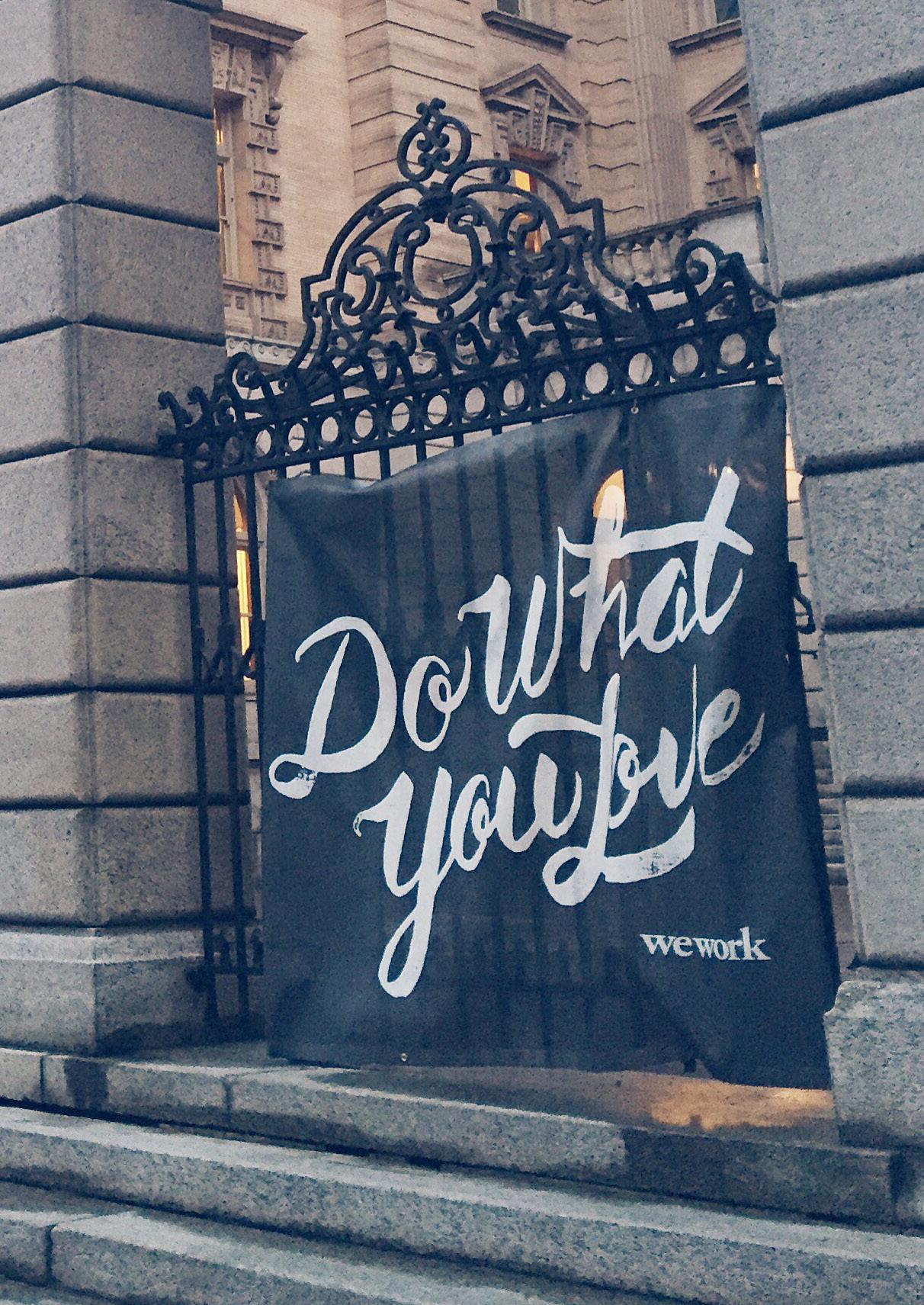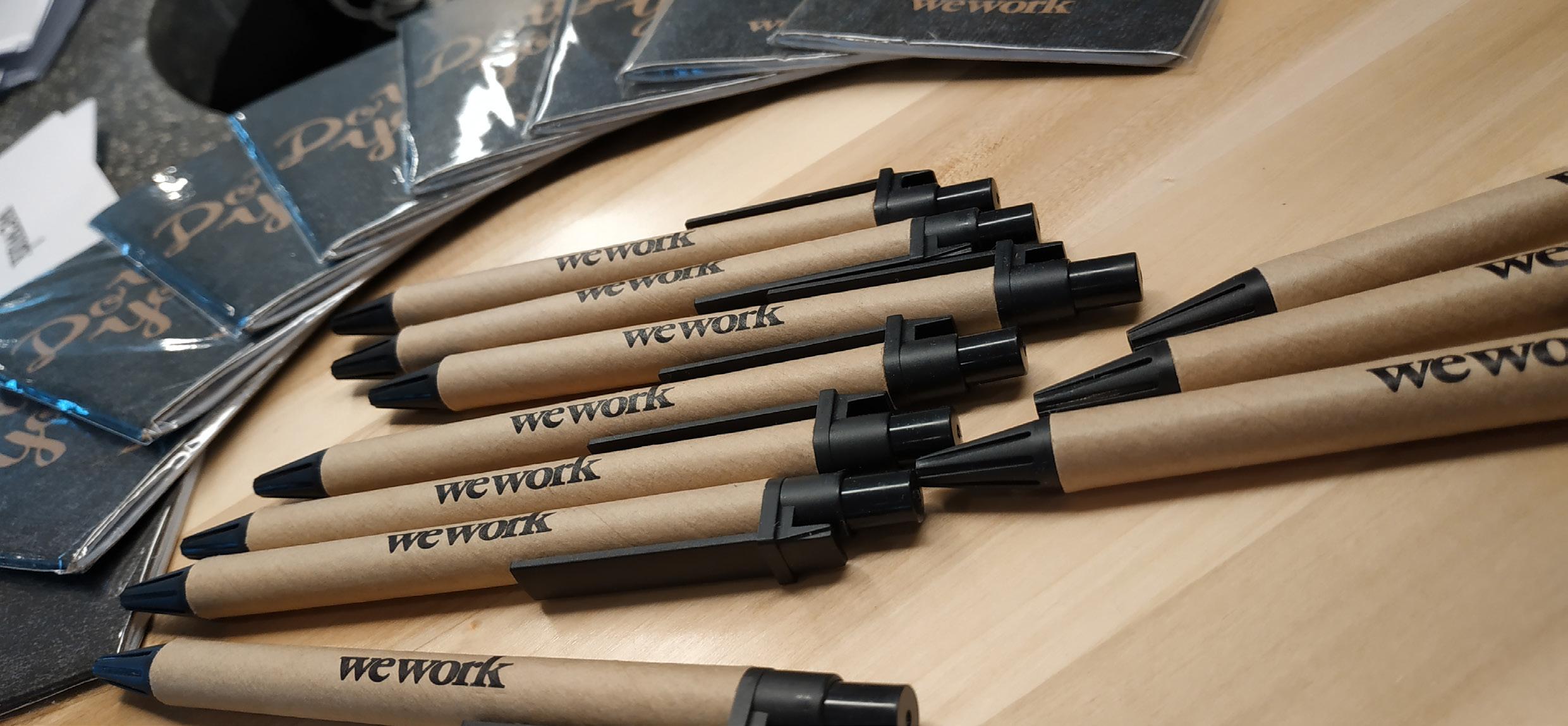
8 minute read
THE Darkside of Entrepreneurial Ecosystems: WeWork Case Study
DR. AYMAN EL TARABISHY

A mere six weeks after the shared workspace behemoth WeWork announced their initial public offering, CEO and founder Adam Neumann voted to resign his title. Almost instantaneously, the proposed valuation of the company was cut in half, and the IPO was shelved. At its peak, the co-working enterprise was valued at $47 billion, which would have made it the most valued company to ever go public. In order to understand how the company reached this apex only to immediately collapse, it is essential to examine the forces within and outside the company that contributed to its pursuit of lucrativeness built on failing business structures. Adam Neumann, the eccentric head of the firm, had the charisma of a televangelist, the party habits of a frat boy, and the seemingly-limitless funding of a Silicon Valley tech startup. His complex was part of his initial appeal and subsequent success. Highly ambitious, he envisaged WeWork to “encompass all aspects of people’s lives, in both physical and digital worlds,” elevating global consciousness in the process (Zeitlin). The magnetism of his persona convinced employees and investors alike that a commercial real estate company leasing out co-working spaces was all part of a grander, more meaningful mission. A former employee described WeWork as selling “energy, this magnetic, productive buzz” (Widdicombe, Weiner). The company exuded charisma over character, yet returns were high so investments kept coming. On paper, the company grew fast. Within two years of launching in 2010, they received a $17 million Series A funding from Benchmark, a venture capital (VC) firm whose first big bets included Uber and Twitter. With these funds, WeWork expanded, and by 2014, they owned 1.5 million square feet and 10,000 members were working out of their spaces (Aydin). As more money flowed in, the number of locations in central US hubs grew, and they expanded to the UK, Europe, and Asia. With each year that passed, the value of the company increased by hundreds of millions of dollars. By 2015, following another round of funding, WeWork was worth $10.23 billion (Sherman). The billions of dollars that accumulated during each round of funding legitimized the company even further, causing a ripple effect in investor behavior as capital firms saw it as a profit machine.

However, the ones operating these spaces were contributing to this legitimacy in a self-fulfilling cycle. The employees known as “WeWorkers” were so convinced that Neumann was starting the next Facebook that they dutifully acted alongside the CEO’s impulses, despite the fact that his actions were putting the company in jeopardy. By the time of the IPO, the “risk” section of WeWork’s S-1, a company filing submitted to the U.S. Securities and Exchange Committees prior to going public, was almost 30 pages long (Campbell). Despite the excessive risk laid out to investors in the S-1, there was no clear outline for how the company would become profitable. This phenomenon of venture capitalists injecting billions of dollars into companies with no tangible framework on how to achieve and maintain profitability is not uncommon. For example, Theranos, the blood-testing company hailed as revolutionary for their vanguard technology, raised $1.1 billion in funding before evidence came out that it was impossible for said technology to produce the results they had falsified (CB Insights). Likewise, the on-demand dog walking app Wag! is currently worth $650 million despite being notorious in New York for losing or killing people's dogs (Fonrouge). Perpetuating this problem are the few dozen venture capital firms controlling the allocation of hundreds of billions of dollars. These resources make them the arbiters of which companies succeed and which ones fail. Silicon Valley entrepreneur Steve Blank, a Palo Alto veteran since 1978 and current adjunct professor at Stanford, has described the VC industry as a “money-hungry mob.” He sees VCs today as not being “interested in anything except optimizing their own profits and chasing the herd … so they waste billions of dollars that could have gone to innovation that actually helps people” (Duhigg). One of the main investment fads amongst VC firms today are unicorn companies, which are privately-held startups valued at over $1 billion. To the VCs seeking out these unicorns, what’s often more important than just a brilliant idea are the founders who are leading the helm of it. Enigmatic leaders such as Adam Neumann and Elon Musk of Tesla are undoubtedly smart, but they also have wild imaginations and can be unpredictable. These traits combined with what they've accomplished can lead one to believe that these people can do anything they put their minds to. This phenomenon, the cult of the CEO, hails these leaders as all-knowing and all-wise, heightening them to celebrity status as a result. Elon Musk being tapped as a host of Saturday Night Live, a spot typically reserved for more traditional celebrities such as actors or athletes, is evidence of this. The fan base they gain through this further cements their role and validates their decisions, and their mass support disincentivizes companies from removing these much-cherished figures from their posts.

At the end of the day the tech magnate’s followers aren’t inspired by business suits and financial reports; they’re attracted to the allure of a real-life Iron Man. In the case of WeWork, Neumann held himself to this same concept of grandeur. A Forbes article released two years before WeWork’s scheduled IPO detailed a conversation between Neumann and Masayoshi Son, head of the massive investment firm SoftBank, during a closing deal in March 2017. Masayoshi posed a question to Neumann: “In a fight, who wins— the smart guy or the crazy guy?” Neumann replied, “Crazy guy,” to which Masayoshi answered, “You are correct … but you are not crazy enough” (Bertoni). This encouragement of idiosyncratic and prolific leadership at all costs has further created a “hands-off” environment between VC firms and the companies they are funding. Founders essentially have free reign. Those with the power to curb their behavior, such as board members or those responsible for managerial oversight, often do nothing, as crossing a founder could lead to the undoing of one’s career. A former high-ranking executive of WeWork company told The New Yorker, “If you review the minutes of our board meetings … there was never a budget plan, or a growth plan, that wasn’t approved unanimously. If board members had concerns, they never once officially said them.” Despite the fact that the company was hemorrhaging money, losing $219,000 an hour by 2019, Neumann’s unchecked power meant that no one could step in to lead the company away from its imminent demise. As evidenced by companies like Wag! and Theranos, value and price are not the same thing. Despite the internal complications at WeWork, the price didn’t reflect the chaos. If profit is the prerogative, failing but lucrative companies won’t fix what isn’t broken. Due to its overvaluation, the unicorn price of WeWork gained investors, which inflated the price and encouraged more investments. Adam Neumann was leading WeWork towards a cliff, propelled by investors, and there was little intervention because the price meant he was apparently doing something right. This only served to further encourage his actions. This case study reflects the constructed, or cosmetic, entrepreneurial ecosystem and most perfectly exemplifies the ways in which investors and external institutions narrow the free market. Ultimately, naturally occurring ecosystems breed fairness. In today’s current environment, the pursuit of obtaining early shares in unicorn WeWork discouraged investors from seeking funding opportunities in their competition. Rebecca Brian Pan, founder of shared workspace company Covo, compared WeWork to a “bottomless bank account that made it impossible for anyone else to survive,” obliterating her company as a result (Duhigg). For entrepreneurs, hard work will build a business, but funding is what keeps it alive and VC firms follow suit. If one company has a billion-dollar valuation, all of them are going to want a piece and in pursuit of that, they will deprive funds from their competition, doing away with competing young startups in the process. Although Adam Neumann’s antics were largely ignored until 2019, he was eventually ousted from his position when he became a legitimate threat to profits. Following the announcement of the IPO, reports trickled out that scrutinized his lifestyle and leadership techniques. He acted as a sacrificial lamb for the sake of margins. However, his time as a leader suggests that greed took precedent over the numerous red flags that were raised during his tenure. This can be seen throughout ecosystems, stretching as far as the initiators of many entrepreneurs’ journeys. The influence is manifesting in Venture Competitions in Universities, where students are prioritizing preparation and planning for a competition to raise funds over garnering skills and breaking new ground. The emphasis on gains rather than actual innovation that benefits society is what Steve Blank warns of. It calls into question the legitimacy of companies with multi-billion dollar valuations. How much of it is real and how much is a bubble that, if popped, will cause economic demise? As we continue to curate and expand the ICSB Marketplace, we are extremely cognizant of the ways in which we occupy the space of student-led venture competitions. In focusing on the skills, connections, and opportunities that these student businesses necessitate, rather than extreme amounts of funding, we are able to support these companies in a way that promotes sustainability and quality over profits. We welcome you all to participate in this program with us by sharing this opportunity to participate in the ICSB Marketplace with your students, as well as to mentor up-and-coming startups as they confront the challenges and opportunities of building their businesses. Thank you all for being part of this journey with us.










